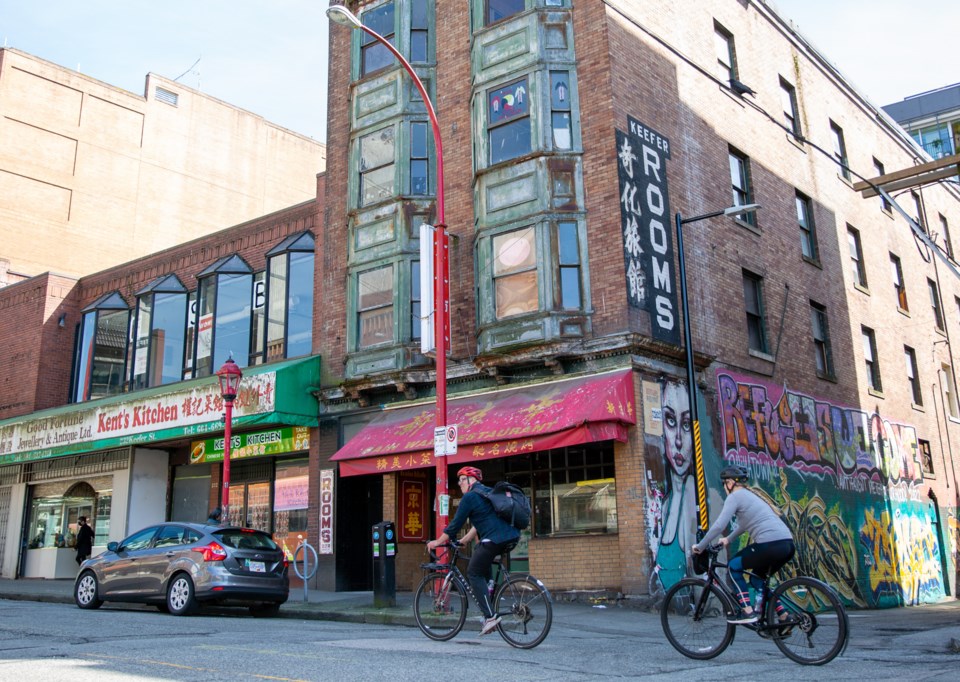The City of Vancouver is hoping the Supreme Court of Canada will determine the legality of a presently nullified bylaw to control rent increases between tenancies of single room accommodation (SRA).
The city has applied to appeal a B.C. Court of Appeal decision that agreed with a B.C. Supreme Court decision to set aside the bylaw.
Following the appeal court’s Feb. 2 decision, the city argues it not only lost the right to apply rent controls on SRA vacancies it also contends the decision affects the regulatory powers of all Canadian municipalities.
“The questions raised by this case affect the regulatory powers of every municipality in Canada. For Vancouver, the question is the extent to which the Vancouver Charter authorizes the rent control bylaw,” stated city counsel Grant Murray and Robert Leblanc in its application for leave to appeal, signed April 1.
“Fundamentally, the question is whether a municipality can regulate in the legislative ‘gaps’ left by a province — particularly when expressly permitted to do so,” counsel added.
In December 2021, Vancouver city council adopted the vacancy control (of rent increases between tenancies) bylaw specifically for privately owned SRAs (also known as single-room occupancy (SRO) units).
Pender Lodge Holdings Ltd., which owns and operates 60 micro-suites in Gastown, challenged the bylaw in court, arguing the city does not have legislative authority to implement rent control as that matter falls under the jurisdiction of the provincial government’s Residential Tenancy Act (RTA) — and the Vancouver Charter, which governs the city’s scope of power and prohibits a person or an entity from being subject to duplicate regulation.
The city asserted it has “expansive powers” to regulate business; however, the company ultimately won and the appeal court judge concluded, per a summary of the case: “With the bylaws in place, the respondents were regulated twice on the subject of rent control … and it was unreasonable for the city to assign itself a broader scope of authority when adopting the bylaws.”
One issue that arose was the RTA does not currently regulate rents between tenancies — only during them. And the RTA does not prohibit vacancy control.
The city denied the RTA “occupied the field of rent control” by being silent on vacancy control specifically. But the judge determined the “dominant purpose” of the bylaw was rent control in the context of residential tenancies and that there was “clearly potential for conflict” between the bylaw and the RTA.
The city now argues the appeal court’s ruling “will have serious implications for municipalities and other legislative bodies if it is allowed to stand,” as it limits the Vancouver Charter’s authority.
“First, and most importantly, the principle has significant potential to invalidate otherwise lawful legislation enacted by the many bodies in Canada that exercise rule-making authority delegated to them by Canada or a province.”
On Tuesday, the city issued a statement, reaffirming its position that, “the regulations aim to slow speculative investment and rapidly rising rents in SRO buildings and prevent tenant displacement.”
And, the city added, “since the Vancouver Housing Strategy was approved in 2017, there has been a growing need for low-income housing, which means we continue to rely on SRO stock as housing despite its inherent challenges. As such, seeking to appeal the court decision related to SRO vacancy control is an important action to support housing affordability in the city.”
The city noted there are about 6,500 SRO rooms that typically provide a “last resort” before homelessness, which is on the rise in the region.



